Honoring International Holocaust Remembrance Day
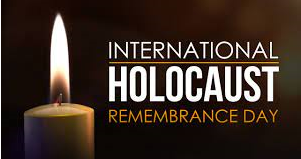 On Saturday, January 27, we honor International Holocaust Remembrance Day. The date was chosen by the United Nations to commemorate victims of the Holocaust during World War II. Six million Jews were murdered by Germany’s Nazi regime, along with 5 million non-Jews. Marked each year since 2005, the date coincides with the anniversary of the liberation of the Auschwitz-Birkenau death camp in Poland by the Soviet Red Army in 1945. One million people died there. Below are some of our most notable titles on the holocaust and its ongoing repercussions.
On Saturday, January 27, we honor International Holocaust Remembrance Day. The date was chosen by the United Nations to commemorate victims of the Holocaust during World War II. Six million Jews were murdered by Germany’s Nazi regime, along with 5 million non-Jews. Marked each year since 2005, the date coincides with the anniversary of the liberation of the Auschwitz-Birkenau death camp in Poland by the Soviet Red Army in 1945. One million people died there. Below are some of our most notable titles on the holocaust and its ongoing repercussions.
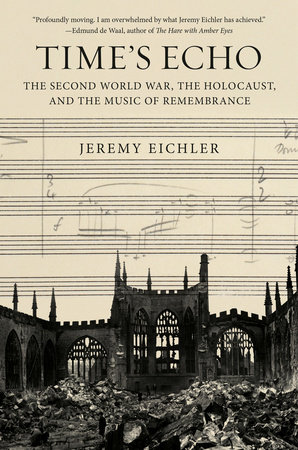
Finalist for the Baillie Gifford Prize for Non-Fiction
Time’s Echo is a stirring account of how music bears witness to history and carries forward the memory of the wartime past. As the living memory of the Second World War fades, Time’s Echo proposes new ways of listening to history, and learning to hear between its notes the resonances of what another era has written, heard, dreamed, hoped, and mourned. A lyrical narrative full of insight and compassion, this book deepens how we think about the legacies of war, the presence of the past, and the renewed promise of art for our lives today.
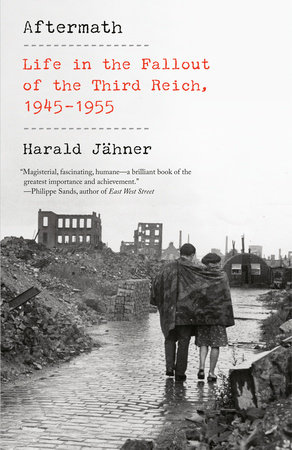
Aftermath is a revelatory history of the transformational decade that followed World War II, when Germany raised itself out of the ashes of defeat, turned away from fascism, and reckoned with the corruption of its soul and the horrors of the Holocaust.
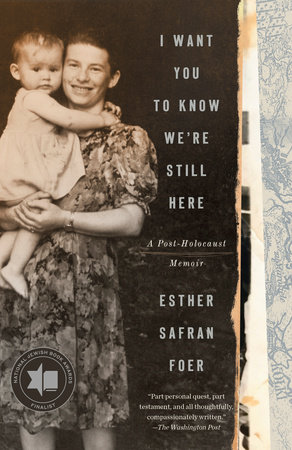
NATIONAL JEWISH BOOK AWARDS FINALIST
I Want You to Know We’re Still Here is the poignant and deeply moving story not only of Esther’s journey but of four generations living in the shadow of the Holocaust. They are four generations of survivors, storytellers, and memory keepers, determined not just to keep the past alive but to imbue the present with life and more life.
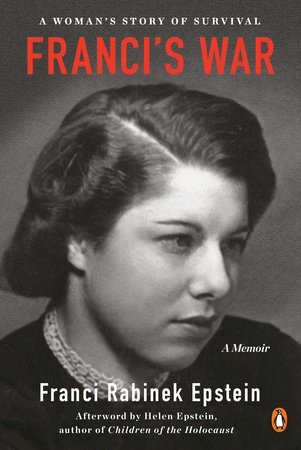
Franci was known in her group as the Prague dress designer who lied to Dr. Mengele at an Auschwitz selection, saying she was an electrician, an occupation that both endangered and saved her life. In this memoir, she offers her intense, candid, and sometimes funny account of those dark years, with the women prisoners in her tight-knit circle of friends. Franci’s War is the powerful testimony of one incredibly strong young woman who endured the horrors of the Holocaust and survived.
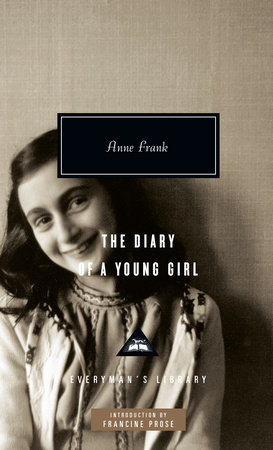
One of the most moving and eloquent accounts of the Holocaust, read by tens of millions of people around the world since its publication in 1947. The Diary of a Young Girl is the record of two years in the life of a remarkable Jewish girl whose triumphant humanity in the face of unfathomable deprivation and fear has made the book one of the most enduring documents of our time. The Everyman’s hardcover edition reprints the Definitive Edition authorized by the Frank estate, plus a new introduction, a bibliography, and a chronology of Anne Frank’s life and times.

A timeless story rediscovered by each new generation, The Diary of a Young Girl stands without peer. This graphic edition remains faithful to the original, while the stunning illustrations interpret and add layers of visual meaning and immediacy to this classic work of Holocaust literature. Includes extensive quotations directly from the definitive edition; adapted by Ari Folman, illustrated by David Polonsky, and authorized by the Anne Frank Foundation in Basel. “[A] stunning, haunting work of art…”—The New York Times Book Review
Click here for the spanish edition
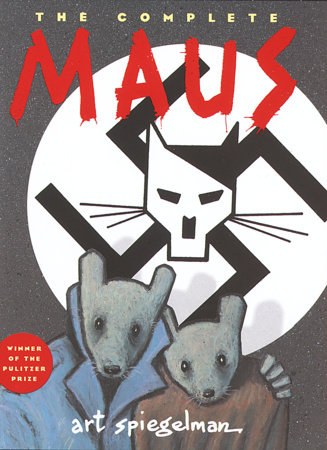
PULITZER PRIZE WINNER
The definitive edition of the graphic novel acclaimed as “the most affecting and successful narrative ever done about the Holocaust” (Wall Street Journal) and “the first masterpiece in comic book history” (The New Yorker)
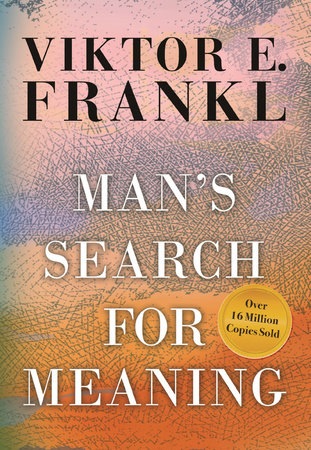
A true classic, Man’s Search for Meaning–at once a memoir, a self-help book, and a psychology manual-is the story of psychiatrist Viktor Frankl’s struggle for survival during his three years in Auschwitz and other Nazi concentration camps. Yet rather than “a tale concerned with the great horrors,” Frankl focuses in on the “hard fight for existence” waged by “the great army of unknown and unrecorded.”
Click here for the young adult edition.
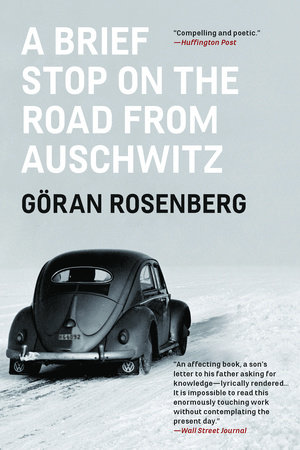
On August 2, 1947 a young man gets off a train in a small Swedish town to begin his life anew. Having endured the ghetto of Lodz, the death camp at Auschwitz-Birkenau, the slave camps and transports during the final months of Nazi Germany, his final challenge is to survive the survival. In this intelligent and deeply moving book, Göran Rosenberg returns to his own childhood to tell the story of his father: walking at his side, holding his hand, trying to get close to him. A Brief Stop on the Road From Auschwitz is also the story of the chasm between the world of the child, permeated by the optimism, progress, and collective oblivion of postwar Sweden, and the world of the father, darkened by the long shadows of the past.
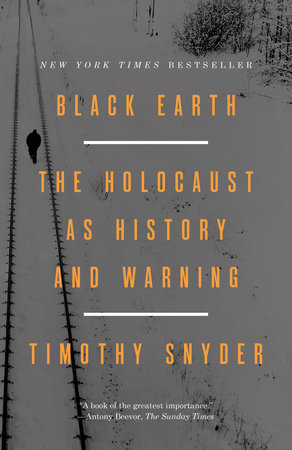
In this epic history of extermination and survival, Timothy Snyder presents a new explanation of the great atrocity of the twentieth century, and reveals the risks that we face in the twenty-first. Based on untapped sources from eastern Europe and forgotten testimonies from Jewish survivors, Black Earth recounts the mass murder of the Jews as an event that is still close to us, more comprehensible than we would like to think and thus all the more terrifying. Groundbreaking, authoritative, and utterly absorbing, Black Earth reveals a Holocaust that is not only history but warning.
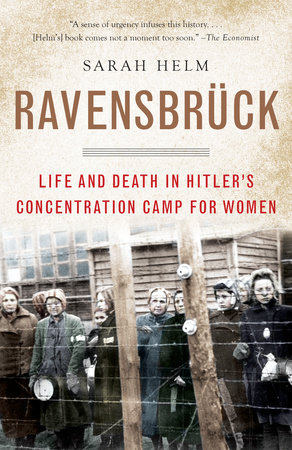
Months before the outbreak of World War II, Heinrich Himmler—prime architect of the Holocaust—designed a special concentration camp for women, located fifty miles north of Berlin. Only a small number of the prisoners were Jewish. Ravensbrück was primarily a place for the Nazis to hold other inferior beings: Jehovah’s Witnesses, Resistance fighters, lesbians, prostitutes, and aristocrats—even the sister of New York’s Mayor LaGuardia. Over six years the prisoners endured forced labor, torture, starvation, and random execution. In the final months of the war, Ravensbrück became an extermination camp. Estimates of the final death toll have ranged from 30,000 to 90,000. For decades the story of Ravensbrück was hidden behind the Iron Curtain. Now, using testimony unearthed since the end of the Cold War and interviews with survivors who have never talked before, Sarah Helm takes us into the heart of the camp. The result is a landmark achievement that weaves together many accounts, following figures on both sides of the prisoner/guard divide. Chilling, compelling, and deeply necessary, Ravensbrück is essential reading for anyone concerned with Nazi history.
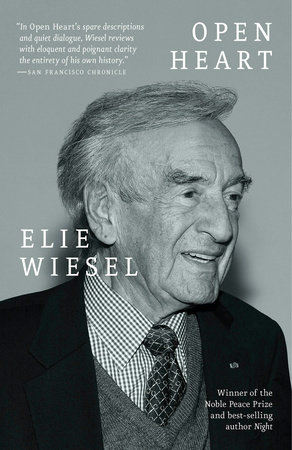
At eighty-two years old, facing emergency heart surgery and his own mortality, Elie Wiesel reflects back on his life. Emotions, images, faces, and questions flash through his mind. His family before and during the unspeakable Event. The gifts of marriage, children, and grandchildren that followed. In his writing, in his teaching, in his public life, has he done enough for memory and for the survivors? His ongoing questioning of God—where has it led? Is there hope for mankind? The world’s tireless ambassador of tolerance and justice gives us a luminous account of hope and despair, an exploration of the love, regrets, and abiding faith of a remarkable man.
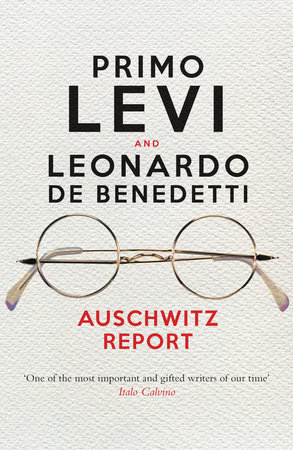
While in a Russian-administered holding camp in Katowice, Poland, in 1945, Primo Levi was asked to provide a report on living conditions in Auschwitz. Published the following year, it was subsequently forgotten and remained unknown to a wider public. Dating from the weeks and months immediately after the war, Auschwitz Report details the authors’ harrowing deportation to Auschwitz, and how those who disembarked from the train were selected for work or extermination. As well as being a searing narrative of everyday life in the camp, and the organization and working of the gas chambers, it constitutes Levi’s first lucid attempts to come to terms with the raw horror of events that would drive him to create some of the greatest works of twentieth-century literature and testimony.
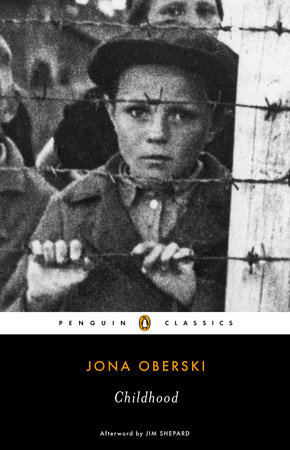
A rediscovered masterpiece: an unblinking view of the Holocaust through a child’s eyes.
Told from the perspective of a child slowly awakening to the atrocities surrounding him, Childhood is a searing story of the Holocaust that no reader will soon forget. As five-year-old Jona waits with his mother and father to emigrate from Nazi-occupied Amsterdam to Palestine, they are awakened at night, put on a train, and eventually interred in the camps at Bergen-Belsen. There, what at first seems to be a merely dreary existence soon reveals itself to be one of the worst horrors humanity has ever created. A triumph of heartrending clarity and dispassionate amazement, Childhood stands tall alongside such monuments of Holocaust literature as The Diary of Anne Frank, Elie Wiesel’s Night, and Primo Levi’s Survival in Auschwitz.
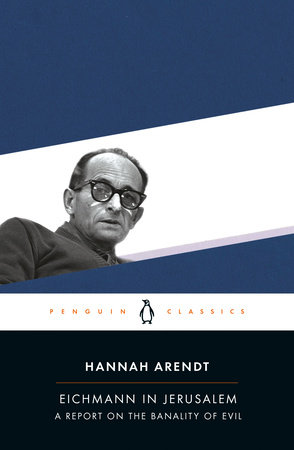
Sparking a flurry of heated debate, Hannah Arendt’s authoritative and stunning report on the trial of German Nazi leader Adolf Eichmann first appeared as a series of articles in The New Yorker in 1963. This revised edition includes material that came to light after the trial, as well as Arendt’s postscript directly addressing the controversy that arose over her account. A major journalistic triumph by an intellectual of singular influence, Eichmann in Jerusalem is as shocking as it is informative.
Click here for a Spanish edition.
For more on these and related titles visit the collection: International Holocaust Remembrance Day 2024
There’s a Book for That! is brought to you by Penguin Random House’s Sales department. Please follow our Tumblr by clicking here—and share this link with your accounts: theresabookforthat.tumblr.com. Thank you!
Did you see something on the news or read about something on your commute? Perhaps you noticed something trending on Twitter? Did you think: “There’s a book for that!”? Then please, send it our way at theresabookforthat@penguinrandomhouse.com
